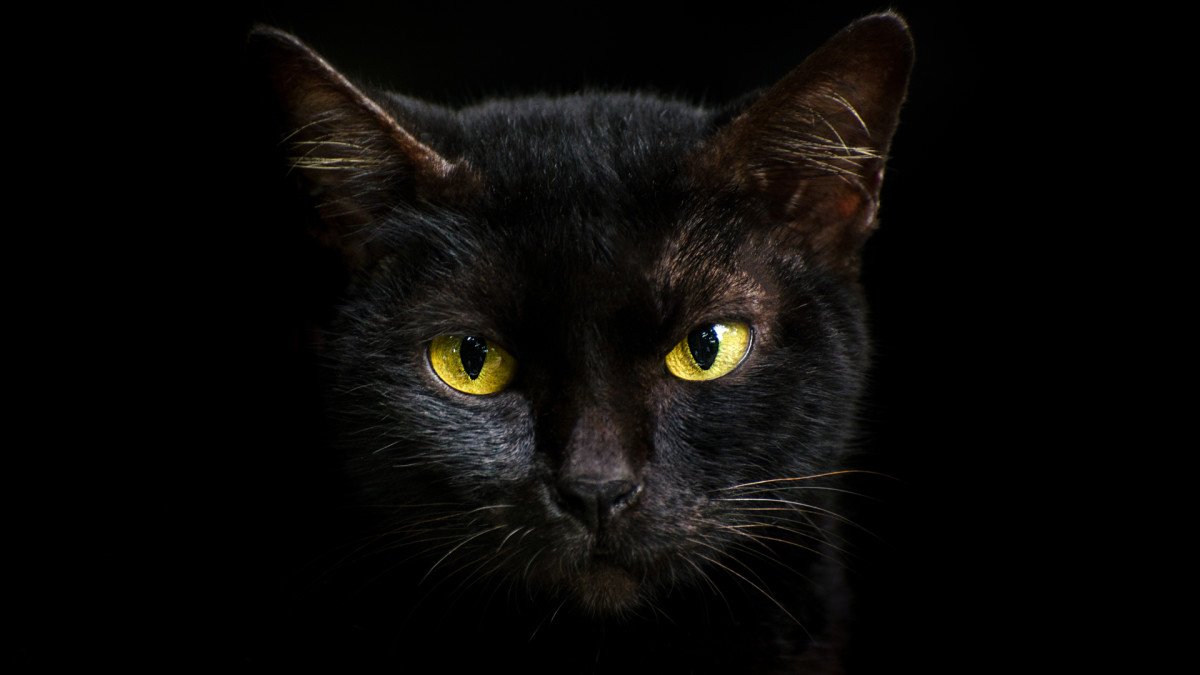Long ago, visitors to English homes were expected to greet the family cat with a kiss to bring good luck. And in the 16th century, it was white cats that were a sign of bad luck, not like today’s belief that black cats crossing your path means misfortune.
More cat lore around the world: In Scotland, if a black cat happened to appear on the doorstep, the family believed their wealth would increase. In Italy, fisherman’s wives kept company with black cats to prevent disasters at sea. And back in the day, some folks thought a cat’s sneeze forecasted rain, while others believed unusually playful behavior signaled a storm was brewing. Seems there’s a black cat superstition for every culture.
Superstition: Black cats are bad omens
The backstory: Despite centuries of royal treatment (Egyptians worshipped them; the Norse goddess Freya rode in a chariot pulled by them), cats took a big hit to their reputation in the 1200s, when Pope Gregory IX, waging a culture war on pagan symbols, damned cats as servants of Satan. As a result, cats—especially black ones—were killed across Europe. One unintended consequence, according to some historians: The cat-deprived continent may have allowed disease-carrying rodents to flourish and spread the bubonic plague of 1348.
Rumors that the feline’s fangs and fur were venomous persisted, and by the witch-hunting days of the 1600s, many Puritans believed black cats to be “familiars”—supernatural demons that serve witches—and avoided them (to borrow an apt phrase) like the plague.










